Innocent Victims of Abuse
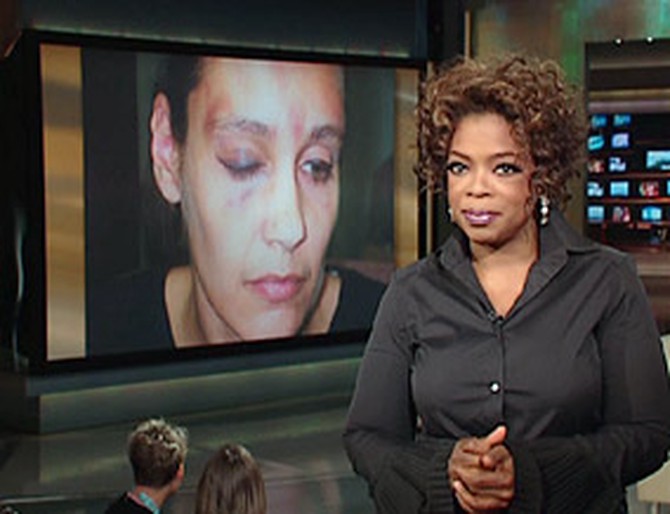
On May 8, 2007, millions tuned in to see the story of Susan Still, a mother of three whose husband physically and emotionally abused her throughout their 17-year marriage. Domestic abuse affects 1 out every 4 women in America, but one thing made Susan's story stand out from the rest.
One Sunday afternoon in 2003, Ulner Lee Still, Susan's husband, forced their 13-year-old son to videotape him as he berated and beat his wife for 51 minutes. Susan says her oldest son operated the camera, while her 8-year-old son sat in the room, watching the abuse unfold.
During the first 40 minutes of the video, Susan's husband insults her and threatens her with physical violence. Then, the threats take a terrifying turn. Ulner punches, kicks and slaps his wife repeatedly during the final 10 minutes of the video.
After The Oprah Show aired this shocking footage, operators from The National Domestic Abuse Hotline reported that they received three times the amount of calls they normally receive. Thousands of people also logged on to the message boards to express their horror, shock and sympathy.
Some women even spoke out about their own abuse. In one letter, a mother wrote, "I don't know how to leave. I have a 16-month-old daughter, no money, no education. I don't know what to do."
After speaking with Susan's sons, Oprah says women who stay in abusive relationships for the sake of their children are making the worst mistake of their lives—and their children's lives.
One Sunday afternoon in 2003, Ulner Lee Still, Susan's husband, forced their 13-year-old son to videotape him as he berated and beat his wife for 51 minutes. Susan says her oldest son operated the camera, while her 8-year-old son sat in the room, watching the abuse unfold.
During the first 40 minutes of the video, Susan's husband insults her and threatens her with physical violence. Then, the threats take a terrifying turn. Ulner punches, kicks and slaps his wife repeatedly during the final 10 minutes of the video.
After The Oprah Show aired this shocking footage, operators from The National Domestic Abuse Hotline reported that they received three times the amount of calls they normally receive. Thousands of people also logged on to the message boards to express their horror, shock and sympathy.
Some women even spoke out about their own abuse. In one letter, a mother wrote, "I don't know how to leave. I have a 16-month-old daughter, no money, no education. I don't know what to do."
After speaking with Susan's sons, Oprah says women who stay in abusive relationships for the sake of their children are making the worst mistake of their lives—and their children's lives.
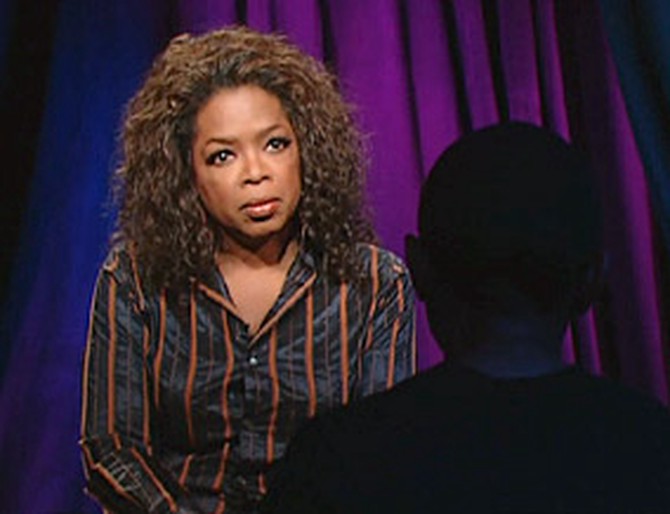
Oprah says she's never heard children who've witnessed domestic abuse discuss the pain they've endured…until now. During one-on-one interviews, Oprah sits down with Susan's sons to talk about life inside a violent household. Susan's youngest son, who is now 12 years old, has never spoken publicly about this before.
Oprah: Tell me, how old were you when you first noticed how your mother was being treated by your father?
Young Son: I really can't say that I actually noticed it. I mean this was like a daily thing that happened in the house. It was just part of my life.
Oprah: So you didn't even think it was abuse?
Young Son: No, I just thought this was regular life…this is how it is.
Watch Oprah's interview with Susan's youngest son.
The 12-year-old says his mother's beatings began when he was about 6 years old. Most of the incidents began with Ulner calling all the children into a room for a "family meeting."
"My dad would talk about how bad of a mother she was," he says. "On one occasion, before we went to school, we had to call her like slut and ho. … It's like we were brainwashed into thinking that this is what was supposed to happen, and we followed his orders. But I always loved [my mother]."
Oprah: Tell me, how old were you when you first noticed how your mother was being treated by your father?
Young Son: I really can't say that I actually noticed it. I mean this was like a daily thing that happened in the house. It was just part of my life.
Oprah: So you didn't even think it was abuse?
Young Son: No, I just thought this was regular life…this is how it is.
Watch Oprah's interview with Susan's youngest son.
The 12-year-old says his mother's beatings began when he was about 6 years old. Most of the incidents began with Ulner calling all the children into a room for a "family meeting."
"My dad would talk about how bad of a mother she was," he says. "On one occasion, before we went to school, we had to call her like slut and ho. … It's like we were brainwashed into thinking that this is what was supposed to happen, and we followed his orders. But I always loved [my mother]."
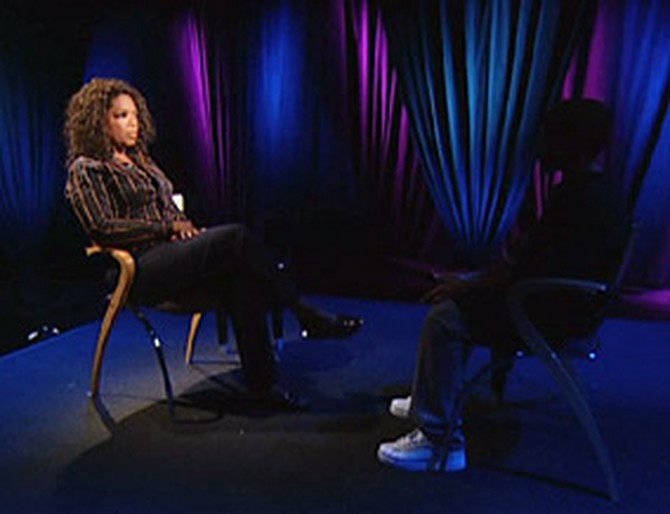
During the first eight years of his life, Susan's youngest son says he never thought about his mother's feelings because he thought his parents had a normal relationship.
"I remember that when she used to talk to [my father] on the phone … she used to have to say, 'Master, yes master. Do you want this master?,' and I thought that was fine," he says. "[I thought] it's just another thing that goes on, and it was regular."
Now, years after Susan fled with him and his brother, he realizes how his father's abuse has affected him.
Oprah: What do you think watching that, being a part of that your entire life, what do you think that has done to you?
Young Son: I think that was just another life. That was a different life, and I really don't think that the first eight years of my childhood happened.
Oprah: Do you think that you could ever grow up and become a batterer—the kind of man who humiliates and abuses women?
Young Son: The only way that I could be that—and I will say it's a possibility—but that would be if I was literally mentally insane.
Susan's youngest child has advice for every mother who's staying in an abusive relationship for the sake of her children "Do not stay," he says. "I know that they think that they want them to grow up in a healthy home with their parents. [But] it's not a good idea, because what is happening—it's not healthy."
"I remember that when she used to talk to [my father] on the phone … she used to have to say, 'Master, yes master. Do you want this master?,' and I thought that was fine," he says. "[I thought] it's just another thing that goes on, and it was regular."
Now, years after Susan fled with him and his brother, he realizes how his father's abuse has affected him.
Oprah: What do you think watching that, being a part of that your entire life, what do you think that has done to you?
Young Son: I think that was just another life. That was a different life, and I really don't think that the first eight years of my childhood happened.
Oprah: Do you think that you could ever grow up and become a batterer—the kind of man who humiliates and abuses women?
Young Son: The only way that I could be that—and I will say it's a possibility—but that would be if I was literally mentally insane.
Susan's youngest child has advice for every mother who's staying in an abusive relationship for the sake of her children "Do not stay," he says. "I know that they think that they want them to grow up in a healthy home with their parents. [But] it's not a good idea, because what is happening—it's not healthy."
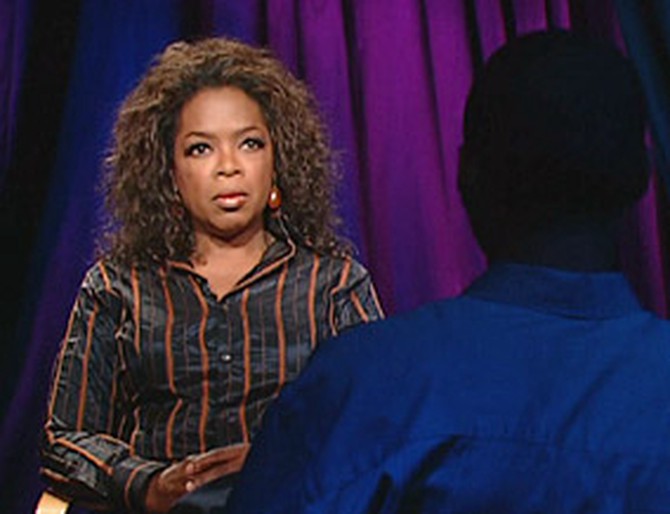
The videotape of Susan's beating was filmed by her 13-year-old son. Although he has rarely talked about the abuse he witnessed, the now 17-year-old boy sits down with Oprah to explain its effect on his life.
The teen describes the day he held a camera as his father physically and verbally abused his mother. "What I remember was he was looking for an audio recorder, and in order to keep myself out of trouble I said, 'Let's get the video camera,'" he says.
Watch as Susan's older son describes videotaping his father's abuse.
Oprah: And so as you are filming your father humiliating your mother, for you this meant what? Because you've seen [the beatings] many times.
Older Son: I mean, it was hard every time. It was upsetting but…
Oprah: Did you kind of get used to it after awhile?
Older Son: Yeah. It was like waking up and brushing your teeth in the morning.
During the video, you can hear Susan's son making negative comments toward his mother, something he says he was forced to do. "Being in that home, it's like it felt like everything was reduced down to just basic survival. Like what animals would do," he says. "You do what you got to do to survive, survival of the fittest. I mean, I love my mom. I wish I could've done something to help, but I knew that she would want me to keep myself safe, too."
The teen describes the day he held a camera as his father physically and verbally abused his mother. "What I remember was he was looking for an audio recorder, and in order to keep myself out of trouble I said, 'Let's get the video camera,'" he says.
Watch as Susan's older son describes videotaping his father's abuse.
Oprah: And so as you are filming your father humiliating your mother, for you this meant what? Because you've seen [the beatings] many times.
Older Son: I mean, it was hard every time. It was upsetting but…
Oprah: Did you kind of get used to it after awhile?
Older Son: Yeah. It was like waking up and brushing your teeth in the morning.
During the video, you can hear Susan's son making negative comments toward his mother, something he says he was forced to do. "Being in that home, it's like it felt like everything was reduced down to just basic survival. Like what animals would do," he says. "You do what you got to do to survive, survival of the fittest. I mean, I love my mom. I wish I could've done something to help, but I knew that she would want me to keep myself safe, too."
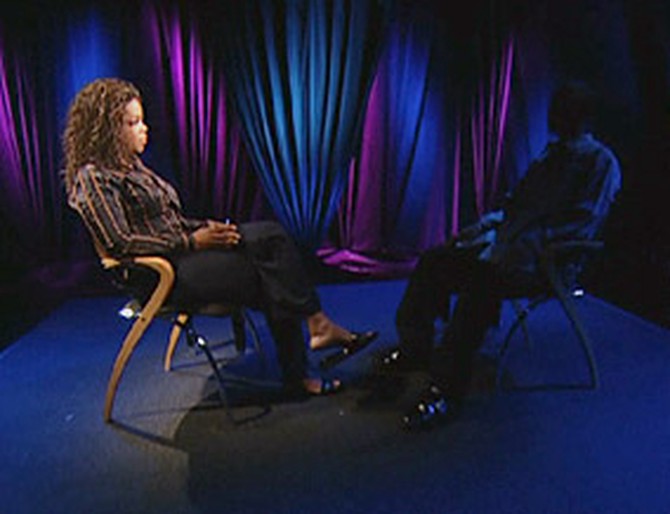
Looking back, Susan's son says he knows that the abuse was wrong. He admits to being angry with his father, but he has not spoken to him since his incarceration.
Oprah: Would you ever be in communication with him, do you think?
Older Son: Yeah, I will. I'll be paying him a visit. …
Oprah: And what do you want to say to him?
Older Son: I want to say a lot of things that I'd rather not say in front of you.
Oprah: What do you think it did to you to see your father behave that way on a regular basis? What do you think?
Older Son: I think it made me angry and quick to fight—like not hit girls, but quick to fight guys on the street or something like that.
Oprah: Have you been able to deal with that or talk about that to someone?
Older Son: It's a lot better now. I know how to control it more.
Oprah: Would you ever be in communication with him, do you think?
Older Son: Yeah, I will. I'll be paying him a visit. …
Oprah: And what do you want to say to him?
Older Son: I want to say a lot of things that I'd rather not say in front of you.
Oprah: What do you think it did to you to see your father behave that way on a regular basis? What do you think?
Older Son: I think it made me angry and quick to fight—like not hit girls, but quick to fight guys on the street or something like that.
Oprah: Have you been able to deal with that or talk about that to someone?
Older Son: It's a lot better now. I know how to control it more.
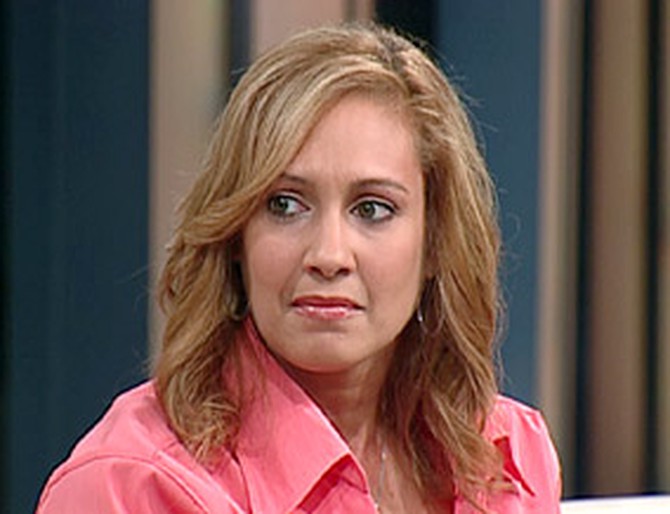
The Department of Justice estimates that 10 million children in America see their mothers get physically abused every year. Studies have also shown that almost 70 percent of children under age 16 who are arrested for a crime were either abused themselves or witnessed abuse, says Lisa Bloch Rodwin, the prosecutor who helped put Ulner behind bars.
"Children are hurt even if they're not hit," she says.
Susan says she believes her youngest child was less affected by her ex-husband's abuse than her oldest son. "[Counselors] told me that he was brainwashed—similar to the brainwashing of a [prisoner of war]," she says. "[They said] it was going to take years and years and years of intense therapy in order to bring him out of it."
If Susan could do it all over again, she says she wouldn't have tried to keep her family together for so many years. "I want to tell [women] that staying for the sake of your children is absolutely not the thing to do," she says. "What ultimately is going to happen is that your child is going to grow up and tell you they wish you would have left."
After seeing her sons' speak out, Susan says she's proud that they're able to express their feelings, but she still feels guilty for the pain her abuse has caused. "I feel so hurt for what they had to see and go through and experience," she says.
Instead of living in the past, Susan is now trying to set a positive example for her sons. "The best thing that I could do for them was to live well now and show them the healthy way to live," she says. "In time, they see that. They see the person you become."
"Children are hurt even if they're not hit," she says.
Susan says she believes her youngest child was less affected by her ex-husband's abuse than her oldest son. "[Counselors] told me that he was brainwashed—similar to the brainwashing of a [prisoner of war]," she says. "[They said] it was going to take years and years and years of intense therapy in order to bring him out of it."
If Susan could do it all over again, she says she wouldn't have tried to keep her family together for so many years. "I want to tell [women] that staying for the sake of your children is absolutely not the thing to do," she says. "What ultimately is going to happen is that your child is going to grow up and tell you they wish you would have left."
After seeing her sons' speak out, Susan says she's proud that they're able to express their feelings, but she still feels guilty for the pain her abuse has caused. "I feel so hurt for what they had to see and go through and experience," she says.
Instead of living in the past, Susan is now trying to set a positive example for her sons. "The best thing that I could do for them was to live well now and show them the healthy way to live," she says. "In time, they see that. They see the person you become."
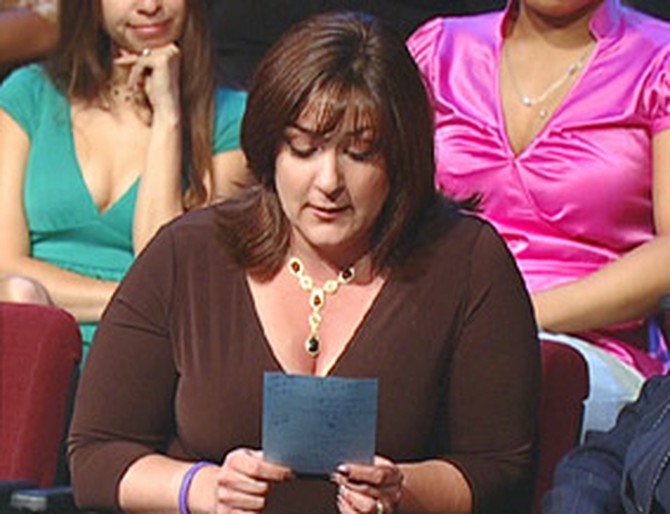
Susan and her children might not be here today if it wasn't for Lynne, Susan's friend and co-worker. When Lynne started noticing bruises, she asked Susan if something was going on at home. Susan lied and said everything was fine. Secretly, Lynne began keeping track of the injuries on her calendar.
Then, one morning when Susan came to work in tears, Lynne took her aside to talk. "She didn't approach me as, 'I know something is going on. I want you to tell me now.' She started out by doing the family thing—she had a family, I had a family. It was one of the things that bonded us," Susan says.
By showing compassion, Lynne got her friend to reveal what was really happening at home. Although Lynne says she wanted to call the police, Susan begged her not to. Instead, they came up with a coded phrase that Susan could tell Lynne if she felt like her life was in danger.
One month before the violent attack that was captured on tape, Susan wrote a letter and hid it in Lynne's desk drawer. The letter read: If anything should happen to me or if I should turn up missing, it is possible my husband was involved in some way. I have been kicked, punched and slapped. I just want my children to know that I stayed because I love them. Please forgive me for the things you have seen in your young life. Know that I would not leave you and live a life without you. Mommy
Susan says she wrote the letter because she was afraid that her husband would kill her and then tell her children that she had run off with another man. "I wanted my children to know how much I loved them," she says.
When Lynne realized how serious Susan's situation was, she says she grew more frantic. "I'd drive by on my lunch hour just to see what I could see…just to make sure she was okay if she didn't show up [at work]," she says.
Then, one morning when Susan came to work in tears, Lynne took her aside to talk. "She didn't approach me as, 'I know something is going on. I want you to tell me now.' She started out by doing the family thing—she had a family, I had a family. It was one of the things that bonded us," Susan says.
By showing compassion, Lynne got her friend to reveal what was really happening at home. Although Lynne says she wanted to call the police, Susan begged her not to. Instead, they came up with a coded phrase that Susan could tell Lynne if she felt like her life was in danger.
One month before the violent attack that was captured on tape, Susan wrote a letter and hid it in Lynne's desk drawer. The letter read: If anything should happen to me or if I should turn up missing, it is possible my husband was involved in some way. I have been kicked, punched and slapped. I just want my children to know that I stayed because I love them. Please forgive me for the things you have seen in your young life. Know that I would not leave you and live a life without you. Mommy
Susan says she wrote the letter because she was afraid that her husband would kill her and then tell her children that she had run off with another man. "I wanted my children to know how much I loved them," she says.
When Lynne realized how serious Susan's situation was, she says she grew more frantic. "I'd drive by on my lunch hour just to see what I could see…just to make sure she was okay if she didn't show up [at work]," she says.
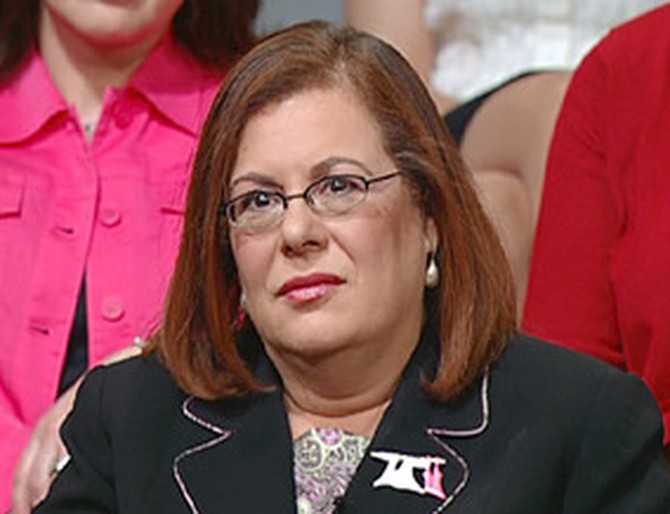
Ulner is now serving 36 years in the Attica Correctional Facility. Lisa, the lawyer who helped put him there, says the video of him beating Susan would have gotten him just one year behind bars. Lynne's diligent notes and Susan's testimony led to his felony convictions, she says.
"A victim, her friends, her family, need to document what happens to them so that when they choose to come forward, we're ready to proceed and go forward and hold people accountable," Lisa says.
Susan urges women in her situation to keep track of any abuse they suffer at the hands of their partners. When it was time for Susan to testify, she says it was hard to remember all the times Ulner had hit her. "You have to remember how many times were you kicked. What was on their foot? How many times were you punched? Where were you punched? On a scale of 1 to 10, what was the pain?" she says. "You have to remember a lot."
If a batterer uses an object—like a shoe or a book—to inflict injury, Lisa says that qualifies as felony assault.
"A victim, her friends, her family, need to document what happens to them so that when they choose to come forward, we're ready to proceed and go forward and hold people accountable," Lisa says.
Susan urges women in her situation to keep track of any abuse they suffer at the hands of their partners. When it was time for Susan to testify, she says it was hard to remember all the times Ulner had hit her. "You have to remember how many times were you kicked. What was on their foot? How many times were you punched? Where were you punched? On a scale of 1 to 10, what was the pain?" she says. "You have to remember a lot."
If a batterer uses an object—like a shoe or a book—to inflict injury, Lisa says that qualifies as felony assault.
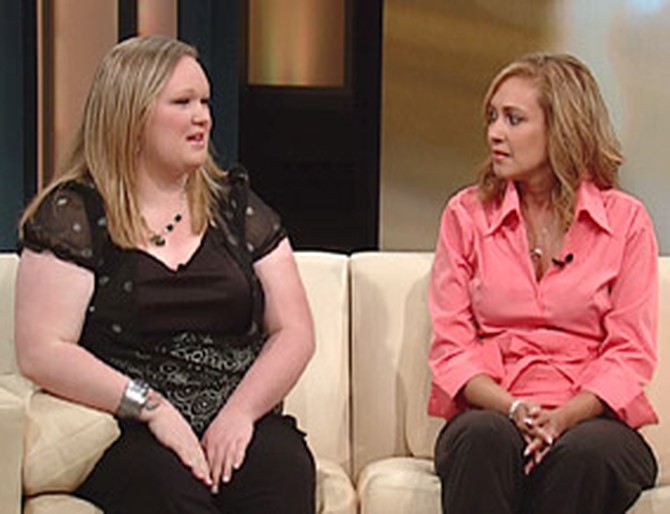
According to statistics, a battered woman will return to her abuser an average of seven times. But Susan's appearance on The Oprah Winfrey Show might have prevented a woman named Heather from making that mistake. Heather wrote a letter to Oprah saying, "I had already made my safe exit, but I was still trapped inside of it, wanting to jump right back in and fix it. This woman has opened my eyes to what I could not see before."
Heather says she wanted to thank Susan in person for helping her. "Nobody in my family has ever experienced domestic abuse. They were all extremely helpful in talking to me, but nobody could relate to what I was feeling, and they couldn't understand why I wanted to fix it," Heather says. "Hearing Susan talk and saying and feeling the same exact things that I felt, it felt like it was okay to leave. It was okay to walk out."
Like many women, Heather says she wanted to return to her husband because she thought she could fix her marital problems. "I've only been married not even two years, so I kept saying to myself, 'Maybe this is the normal marriage things?'" she says. "But then when it progressed from verbal to physical, you start really questioning, 'This isn't an early marriage crisis that you need to fix. These are real problems.'"
Heather says she wanted to thank Susan in person for helping her. "Nobody in my family has ever experienced domestic abuse. They were all extremely helpful in talking to me, but nobody could relate to what I was feeling, and they couldn't understand why I wanted to fix it," Heather says. "Hearing Susan talk and saying and feeling the same exact things that I felt, it felt like it was okay to leave. It was okay to walk out."
Like many women, Heather says she wanted to return to her husband because she thought she could fix her marital problems. "I've only been married not even two years, so I kept saying to myself, 'Maybe this is the normal marriage things?'" she says. "But then when it progressed from verbal to physical, you start really questioning, 'This isn't an early marriage crisis that you need to fix. These are real problems.'"
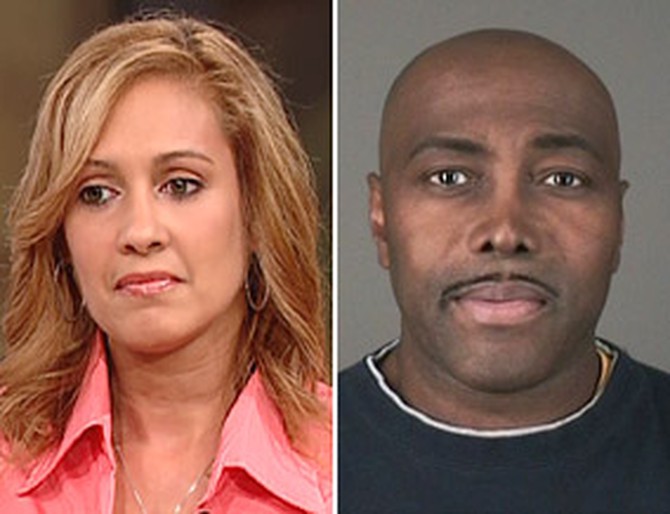
After Susan's appearance on the show, Oprah received a four-page, handwritten letter from Ulner Lee Still responding to Susan's accusations. In the letter, Ulner takes full responsibility for his wrongdoing in the actual videotape—but claims there were evil demonic forces at work in the family's home, including "spirits."
Susan says she's not surprised by Ulner's statement. "I find it very interesting that he will accept responsibility for what happened on the video alone when [he did] so much more," she says. "[That] says a lot to me."
Susan says she's not surprised by Ulner's statement. "I find it very interesting that he will accept responsibility for what happened on the video alone when [he did] so much more," she says. "[That] says a lot to me."
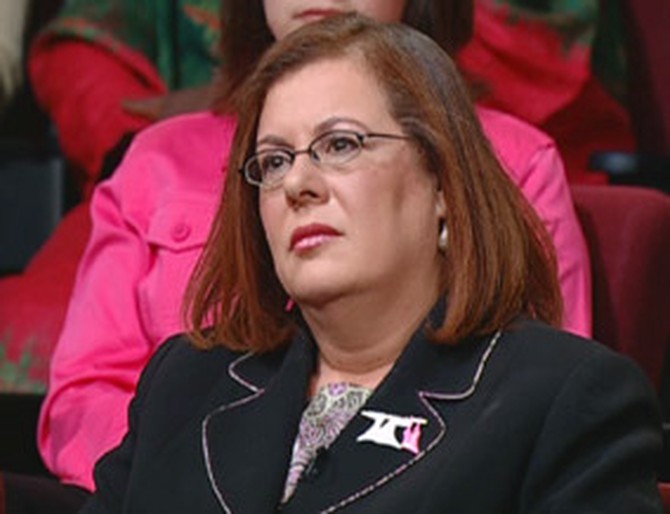
Lisa has worked with domestic abuse victims for years, and she says it is critical to have a plan in place before you try to escape from an abusive home. As you formulate your plan, tailor it to your specific situation. "There's a different plan depending on whether you live in a farm in South Dakota or a city, like Detroit," Lisa says. "A plan has to be right for who you are, where you live, how many kids you have. So you figure out what you're going to do before you take that first step."
Next, Lisa says you should create a code word that you share with a trusted friend or family member so that if you say it, they can call the police. In addition, she says you should document your abuse in detail, so you can give specific information to the authorities when you are ready to file a police report.
It's also important to use a journal, pictures, medical records, court papers and other documentation to keep track of the abuse, which will be crucial in a court case.
To prepare for your escape, Lisa says you should hide an emergency bag with necessities— money, a checkbook, credit cards, identification for yourself and your children, car keys, medications, court papers, orders of protection and any other pertinent items.
"You want to have an emergency bag, and that bag has to be hidden. Your journal has to be hidden. Your documentation has to be hidden," Lisa says. "Not in your house, not in your car. That has to be hidden at work or with a neighbor or family member."
Next, Lisa says you should create a code word that you share with a trusted friend or family member so that if you say it, they can call the police. In addition, she says you should document your abuse in detail, so you can give specific information to the authorities when you are ready to file a police report.
It's also important to use a journal, pictures, medical records, court papers and other documentation to keep track of the abuse, which will be crucial in a court case.
To prepare for your escape, Lisa says you should hide an emergency bag with necessities— money, a checkbook, credit cards, identification for yourself and your children, car keys, medications, court papers, orders of protection and any other pertinent items.
"You want to have an emergency bag, and that bag has to be hidden. Your journal has to be hidden. Your documentation has to be hidden," Lisa says. "Not in your house, not in your car. That has to be hidden at work or with a neighbor or family member."
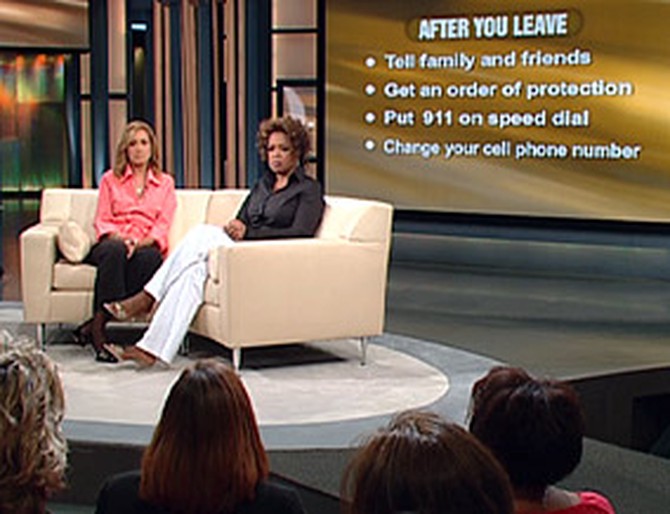
Once you have made your escape, Lisa says you should reach out to your friends and family who can help you stay safe—and then you should take a legal step. "Get an order of protection the day you leave—not tomorrow, not next week," Lisa says. "You go to the court in every single state in this country and you can get an immediate order of protection, and you make lots of copies—in your car, in your purse, at work. You give it to the security guy at work. You give it to the principal at school."
Lisa says you should keep 911 on your speed dial, and change your cell phone number to make it more difficult for your abuser to reach you. Change your daily routine to keep away from stores or other places where you usually go, and avoid being alone. "Stay with somebody who loves you and takes care of you and wants to support you," Lisa says. "If you're going to the mall, go with a girlfriend. If you're going out for the weekend, make sure somebody's with you."
Get all the steps to creating an escape plan.
If you don't have a safe place to stay with family or friends, seek out a shelter for battered women or a safe home. And if you have children, remember that they, too, have been torn from their home and their normal life. They might need help from counselors to deal with the trauma. "There is a whole community of support services with people like me ready to hold out a hand and say, 'Grab on. We're here for you,'" Lisa says.
Lisa says you should keep 911 on your speed dial, and change your cell phone number to make it more difficult for your abuser to reach you. Change your daily routine to keep away from stores or other places where you usually go, and avoid being alone. "Stay with somebody who loves you and takes care of you and wants to support you," Lisa says. "If you're going to the mall, go with a girlfriend. If you're going out for the weekend, make sure somebody's with you."
Get all the steps to creating an escape plan.
If you don't have a safe place to stay with family or friends, seek out a shelter for battered women or a safe home. And if you have children, remember that they, too, have been torn from their home and their normal life. They might need help from counselors to deal with the trauma. "There is a whole community of support services with people like me ready to hold out a hand and say, 'Grab on. We're here for you,'" Lisa says.
Published 01/01/2006

